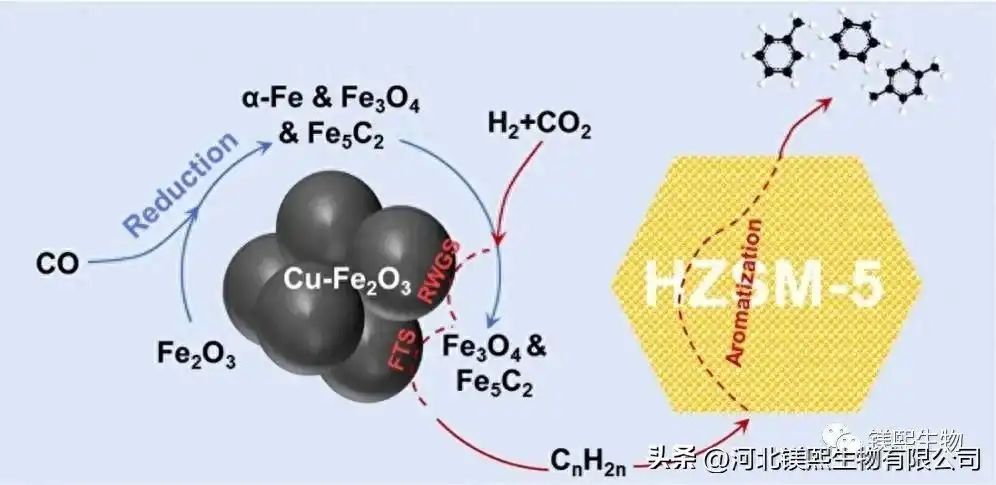Hebei Messi Biology Co., Ltd. stated that magnesium is a widely used metal in the modulation of acidity of HZSM-5 molecular sieve. The acidity of the nano-HZSM-5 molecular sieve is adjusted by magnesium oxide modification, using XRD, aluminum solid magic angle spinning nuclear magnetic resonance (AI MAS NMR), N₂ adsorption/desorption, ammonia-temperature programmed desorption (NH3-TPD) and pyridine Adsorption Fourier transform infrared (FT-IR) and other methods were used to examine the effect of magnesium oxide modification on the physical and chemical properties of nano-HZSM-5 molecular sieves and the catalytic MTP reaction performance, and the reaction performance of the catalyst was correlated with its physical and chemical characterization results.

The results show that as the magnesium oxide content increases, the selectivity of internal alkenes and butenes gradually increases, while the selectivities of methane, ethylene and aromatics gradually decrease. The stability of the catalyst first increases with the increase of magnesium oxide content, reaches the maximum when the magnesium oxide content is 2%, and then decreases with the increase of magnesium oxide content. The effect of magnesium oxide modification on the catalytic performance of nano-HZSM-5 molecular sieve is mainly caused by changes in its acidity and texture properties.
The results show that an appropriate amount of magnesium oxide modification reduces the acid amount and acid strength of the nano-HZSM-5 molecular sieve, thereby significantly improving the selectivity of propylene and the stability of the catalyst in the methanol conversion reaction. The selectivity of propylene and maintaining the complete conversion of methanol The reaction time was significantly increased from 30.1% and 75h to 35.2% and 125h respectively. However, excessive magnesium oxide modification significantly reduces the acid content of the nano-HZSM-5 molecular sieve, and the external specific surface area and pore volume are significantly reduced, resulting in a greatly reduced stability of the catalyst.
